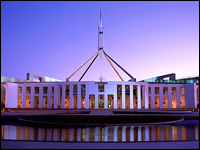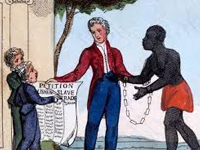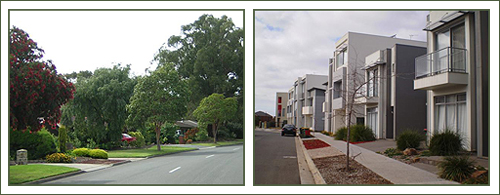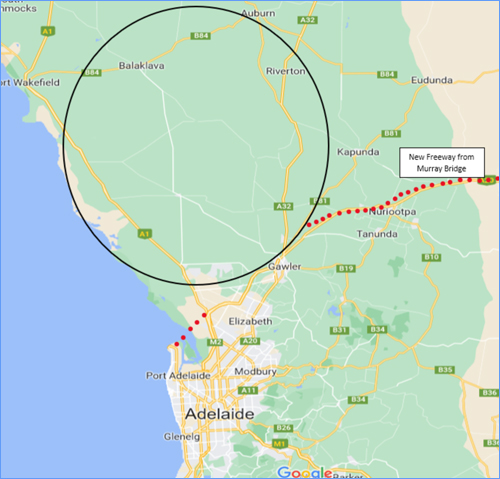 In Act 1 of Shakespeare’s great play Macbeth, the three witches appear before Macbeth and his friend Banquo. The witches predict that Macbeth will be king, and that one of Banquo’s sons will also be king one day.
In Act 1 of Shakespeare’s great play Macbeth, the three witches appear before Macbeth and his friend Banquo. The witches predict that Macbeth will be king, and that one of Banquo’s sons will also be king one day.
Banquo is not convinced and responds, “If you can look into the seeds of time and say which seed will grow and which will not, speak then to me.”
As we start another year, like Banquo, let us ask, ‘who can look into the seeds of time’? Who can predict the future?
None of Banquo’s sons became king.
Like the witches in Macbeth, today’s economic forecasters, weather forecasters and social/population forecasters get it wrong time after time.
In her excellent book The Siberian Curse, British-American author Fiona Hill describes how the settlement of Siberia in the twentieth century and the mass movement of people and industry into this vast region by central planners lie at the root of many of Russia’s contemporary problems.
Central planning – be it geo-political, social, urban or economic – has caused many a disaster.
Examples abound around the world, but allow me to cite a local example.
A number of years ago, I bought a block of land on a very busy main road in one of Australia’s capital cities. I submitted plans to the local council to build 12 semi-detached home units on the land and, as the zoning allowed for such a development, I didn’t expect any problems. That was of course until I came up against the Council Town Planner who said he’d recommend the development be approved “subject to the provision of noise attenuation devices” across the front of the property (noise attenuation is a fancy name for sound-proofing). I tried to point out that there were thousands of kilometres of main roads across the country with many hundreds of thousands of dwellings fronting these main roads and it all seemed to work quite well without ‘sound attenuation’. In fact, I told him that the project was actually geared towards older people, many of whom actually prefer the noise of traffic and pedestrians chatting as they said it made them feel safer than in some quiet back street or cul-de-sac. But he was having none of it. He wanted his noise attenuation devices.
Naturally, I tried the commercial argument on him that people who didn’t like noise wouldn’t buy into the project and that the market would sort it out. But for reasons known only to town planners but obscure to common sense, he rejected all my pleas, and I had an acoustic engineer design a front fence to assist with noise attenuation. But no sooner had I finished the job than the Royal Society for the Deaf bought all the units – every single one of them. I showed the planner the contract and he couldn’t even see the funny side of it.
Ludwig von Mises, one of the most notable economists and social philosophers of the 20th Century, observed:
‘The planner is a potential dictator who wants to deprive all other people of the power to plan and act according to their own plans. Planners aim at one thing only: the exclusive absolute pre-eminence of their own plans.’
National, State and Local government planners now infiltrate our lives at every turn.
Take the Reserve Bank of Australia (RBA), for example, the nation’s main economic planner.
The RBA has over 1,500 staff and as well as its headquarters in Sydney, has offices in London, New York and Beijing.
The RBA basically, has one main task – to control inflation. As we know, inflation is caused by governments spending more money than they receive. When governments do this, the RBA is there to put up interest rates and make the government feel the pain of their spending. In recent years, however, the RBA did not do this. In fact, in spite of record deficit-spending, former RBA Governor Philip Lowe said in 2021 the bank would be keeping interest rates low until at least 2024!
In effect, the RBA was complicit in shifting the inflation burden to consumers – particularly low-income consumers – through price rises.
But then the chickens came home to roost and the RBA has hiked interest rates 14 times since then in an attempt to bring inflation under control.
There have been other instances when our economic planner-in-chief has got it wrong – with dire consequences.
One can trace the current housing affordability crisis back to the RBA when it similarly refused to admit it made a mistake with its submission to the 2003 Productivity Commission Inquiry into First Home Ownership. The Reserve Bank’s focus on demand stimulators (capital gains tax, negative gearing, low interest rates, etc. – all Federal matters) had a huge influence in shaping the Productivity Commission’s findings. As head of Australia’s ‘economic family’ – the Reserve Bank, the Commonwealth Treasury and the Productivity Commission – the Reserve Bank must take much of the blame for the housing crisis which ensued.
 In our Newsletters this year we have covered everything from the Voice bomb to the atom bomb, from Israel to industrial relations, from Gough to the Gulags, from federalism to forgiveness, from taxation to Truman, and from housing to Hamlet – and a whole lot more in between.
In our Newsletters this year we have covered everything from the Voice bomb to the atom bomb, from Israel to industrial relations, from Gough to the Gulags, from federalism to forgiveness, from taxation to Truman, and from housing to Hamlet – and a whole lot more in between. It is two years since we launched our
It is two years since we launched our  Frederick Douglass (1817–1895) is considered by many to be America’s greatest African American. Along with Booker T. Washington and Martin Luther King, these make up their top three.
Frederick Douglass (1817–1895) is considered by many to be America’s greatest African American. Along with Booker T. Washington and Martin Luther King, these make up their top three. As the late Texas politician Robert Strauss used to say, “You can fool some of the people all of the time – and they’re the ones you need to concentrate on”.
As the late Texas politician Robert Strauss used to say, “You can fool some of the people all of the time – and they’re the ones you need to concentrate on”. In his fascinating book, A Theory of Justice, the American moral, legal and political philosopher John Rawls promotes an idea called the Veil of Ignorance.
In his fascinating book, A Theory of Justice, the American moral, legal and political philosopher John Rawls promotes an idea called the Veil of Ignorance.
